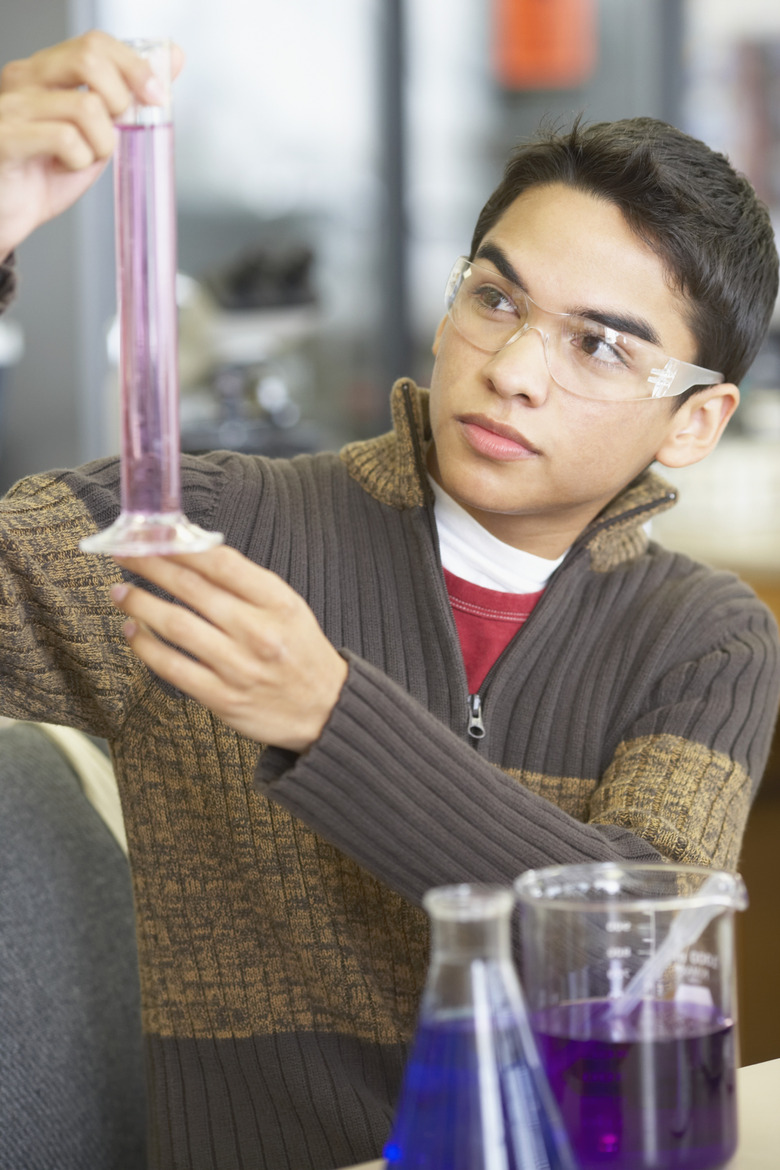What Classes Should You Take In Highschool If You Want To Be A Chemical Engineer?
Chemical engineers solve problems involving the design, production and use of chemicals, fuels, drugs and other products by using knowledge and skills from chemistry, physics and biology. Chemical engineers are among the highest paid engineering professionals. They design processes and safety procedures for handling dangerous chemicals, plan manufacturing systems and test manufacturing facilities for safety and compliance with regulations.
Chemical Engineering Degree Options
Chemical Engineering Degree Options
Most universities offer a Bachelor of Science degree in chemical engineering, which is usually a prerequisite for any career as a chemical engineer. Students who wish to continue to the graduate level can pursue a master's degree or Ph.D. in chemical engineering and do independent research at a university or private laboratory. Some schools allow students to enroll in a five-year program to graduate with a master's degree. A bachelor's degree takes about four years to complete and may include in-depth laboratory experience or an opportunity to work in a professional setting as an intern.
Mathematics
Mathematics
Mathematics is the basis of almost every scientific and engineering discipline. High school students who are interested in careers in chemical engineering can prepare for the college courses in mathematics and engineering by taking upper-level math classes. Classes like calculus, especially the advanced placement courses, will help students place into higher-level math courses in college and succeed in the college-level mathematics courses that are an essential part of the chemical engineering major.
Chemistry
Chemistry
Chemical engineering requires a strong background in chemistry, the basics of chemical reactions and formulae, the vocabulary of chemistry and basic laboratory techniques. This basic knowledge allows for advanced coursework in thermodynamics, transport processes and chemical kinetics. Most high schools offer courses in chemistry, but students may benefit from an advanced placement chemistry course or another class that contains a strong laboratory component.
Physics and Biology
Physics and Biology
As an applied science, chemical engineering combines concepts from a variety of other disciplines, like biology and physics. Some chemical engineers work on biological problems like the diffusion of oxygen through blood vessels, others are concerned with problems of thermodynamics in designing control systems for reactors in an industrial plant. High school students can prepare for this breadth of subject matter by taking courses in biology and physics. Additionally, if a school offers advanced placement courses in these subjects, or advanced courses in alternative subjects like geology or genetics, these would also be of use to a future chemical engineer.
Cite This Article
MLA
Prudchenko, Kate. "What Classes Should You Take In Highschool If You Want To Be A Chemical Engineer?" sciencing.com, https://www.sciencing.com/what-classes-should-you-take-in-highschool-if-you-want-to-be-a-chemical-engineer-12752229/. 10 July 2013.
APA
Prudchenko, Kate. (2013, July 10). What Classes Should You Take In Highschool If You Want To Be A Chemical Engineer?. sciencing.com. Retrieved from https://www.sciencing.com/what-classes-should-you-take-in-highschool-if-you-want-to-be-a-chemical-engineer-12752229/
Chicago
Prudchenko, Kate. What Classes Should You Take In Highschool If You Want To Be A Chemical Engineer? last modified August 30, 2022. https://www.sciencing.com/what-classes-should-you-take-in-highschool-if-you-want-to-be-a-chemical-engineer-12752229/
